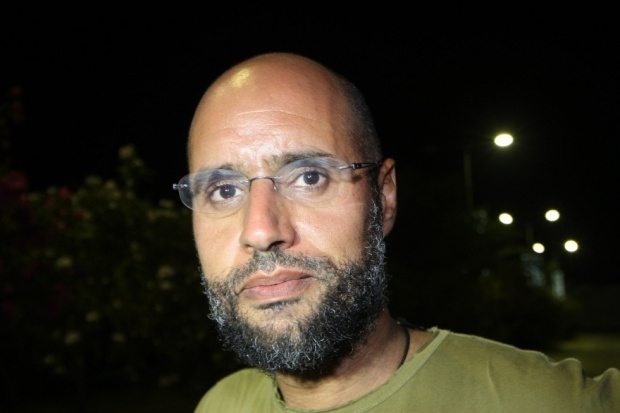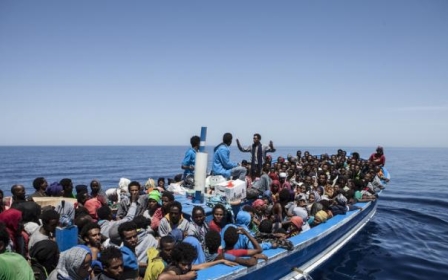Libya sentences Gaddafi son, eight others to death

A Libyan court on Tuesday sentenced slain former leader Muammar Gaddafi's son Saif al-Islam and eight other defendants to death for crimes during the 2011 uprising.
Former intelligence chief Abdullah Senussi and Gaddafi’s last prime minister Al-Baghdadi al-Mahmudi were also among those sentenced to death.
Saif al-Islam was not in court because he is held in the south-west hill town of Zintan by militiamen opposed to the Tripoli authorities.
The trial, which opened in the Libyan capital in April last year, has been dogged by criticism from human rights watchdogs and an unresolved dispute with the International Criminal Court in The Hague over jurisdiction in the case of Gaddafi’s son.
The 37 defendants were charged with crimes including murder and complicity in incitement to rape during the 2011 uprising that toppled the dictatorship.
The militia holding Saif al-Islam is loyal to the House of Representatives government which fled to the remote east last August when a rival militia alliance seized the capital and set up its own administration.
Saif al-Islam's sole appearances before the court have been by video link and there have been none since May last year.
Most of the other defendants are held in the capital, but some are held in Libya's third city Misrata which is loyal to the Tripoli authorities.
Saif al-Islam is wanted by the Hague-based court on charges of war crimes and crimes against humanity.
ICC prosecutors say that as part of his father's "inner circle", he "conceived and orchestrated a plan to deter and quell, by all means, the civilian demonstrations against Gaddafi’s regime".
He has been held in Zintan since his capture in November 2011 despite repeated ICC demands for Libya to hand him over for trial.
Charges before the Tripoli court also included kidnapping, plunder, sabotage and embezzlement of public funds.
Human rights groups have expressed concerns about the trial, criticising the fact that the accused have had only limited access to lawyers and key documents.
New MEE newsletter: Jerusalem Dispatch
Sign up to get the latest insights and analysis on Israel-Palestine, alongside Turkey Unpacked and other MEE newsletters
Middle East Eye delivers independent and unrivalled coverage and analysis of the Middle East, North Africa and beyond. To learn more about republishing this content and the associated fees, please fill out this form. More about MEE can be found here.




